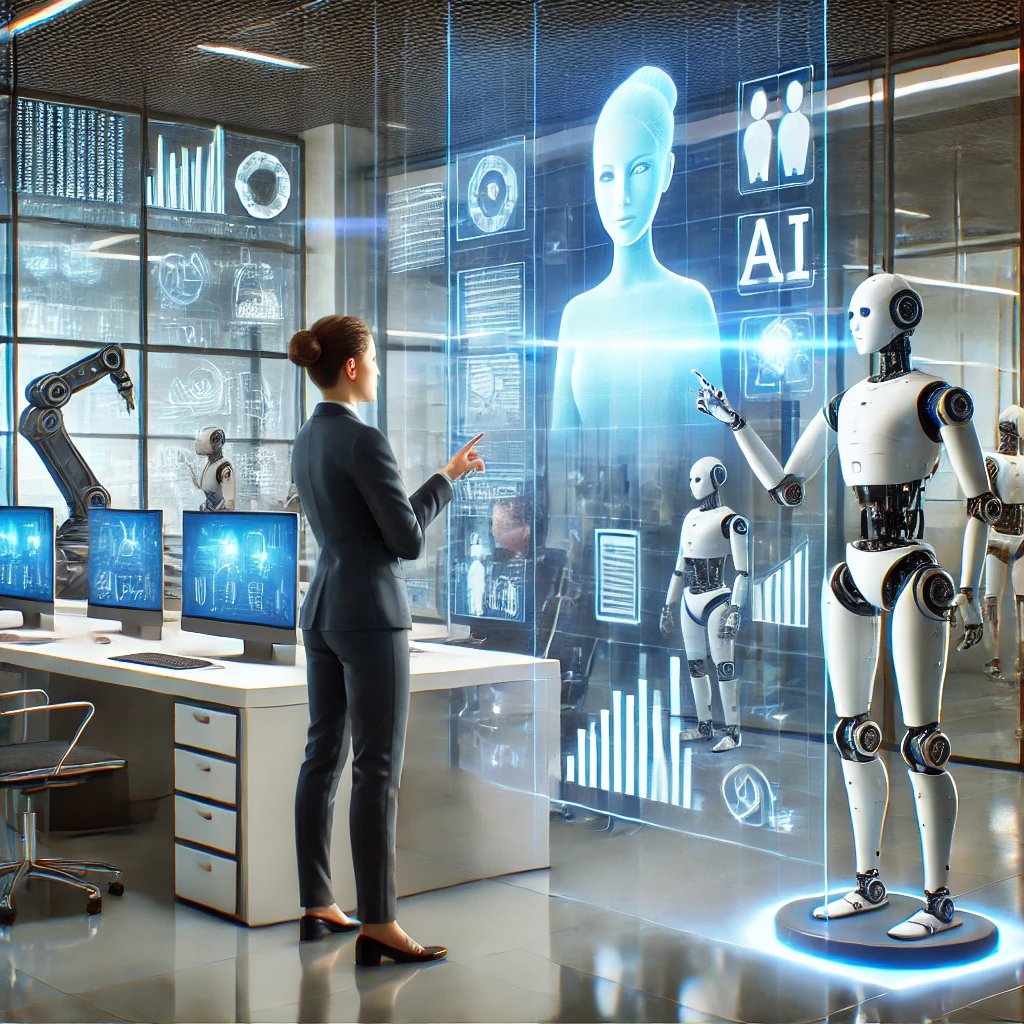AI and the Future of Work: How Automation is Changing Jobs
Artificial Intelligence (AI) is transforming the way we work. From automating repetitive tasks to enhancing decision-making, AI is reshaping industries across the globe. But does this mean that machines will take over human jobs? The answer is more nuanced. AI is not just replacing jobs; it is creating new opportunities and shifting the way we work. Let’s explore how AI is changing the workforce and what the future might look like.


AI’s Impact on Jobs
AI-driven automation has already made its way into various industries, from manufacturing to finance. Here are some key areas where AI is making a difference:
1. Automating Repetitive Tasks
Routine tasks that require minimal decision-making, such as data entry, invoice processing, and customer service chatbots, are being handled by AI. This allows employees to focus on more complex and creative work.
2. Enhancing Productivity
AI-powered tools help professionals in fields like healthcare, marketing, and finance by analyzing large amounts of data quickly and providing insights that improve efficiency and accuracy.
3. Creating New Job Opportunities
While some jobs are being automated, AI is also creating new roles. AI specialists, data analysts, and robotics engineers are in high demand. Additionally, jobs that require emotional intelligence, creativity, and human interaction are expected to thrive.
4. Changing Skill Requirements
As AI takes over repetitive tasks, workers need to adapt by developing skills in critical thinking, problem-solving, and AI collaboration. Lifelong learning and upskilling will become essential in the AI-driven workforce.
The Human-AI Collaboration
AI is best utilized as a tool to augment human capabilities, not replace them. The future workforce will likely consist of humans and AI working together, where AI handles data-heavy tasks and humans provide context, ethics, and strategic decision-making.
Preparing for the Future
To stay relevant in an AI-powered world, workers and businesses should focus on:
Continuous Learning: Upskilling in AI-related fields and adapting to new technologies.
Leveraging AI as a Tool: Using AI to enhance productivity rather than fearing job loss.
Developing Soft Skills: Creativity, leadership, and emotional intelligence will remain crucial.
Conclusion
AI is not the end of human jobs; it is the beginning of a new era of work. While automation is transforming industries, it is also opening doors to new possibilities. The key to thriving in this evolving landscape is to embrace AI as a collaborative partner and continuously adapt to new challenges. The future of work is not about humans vs. AI—it’s about humans and AI working together for a more innovative and efficient world.